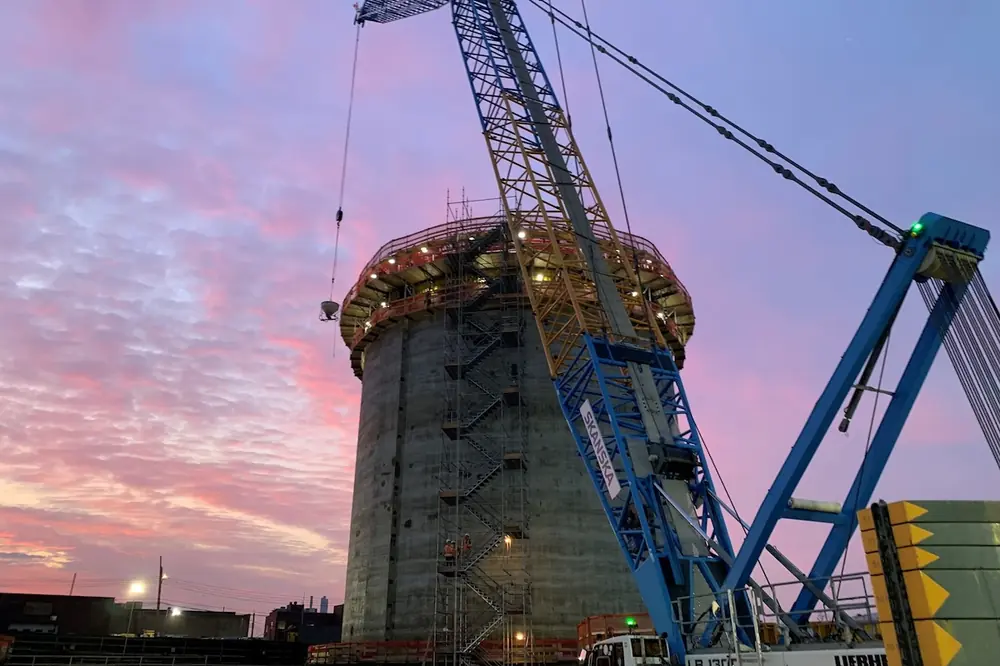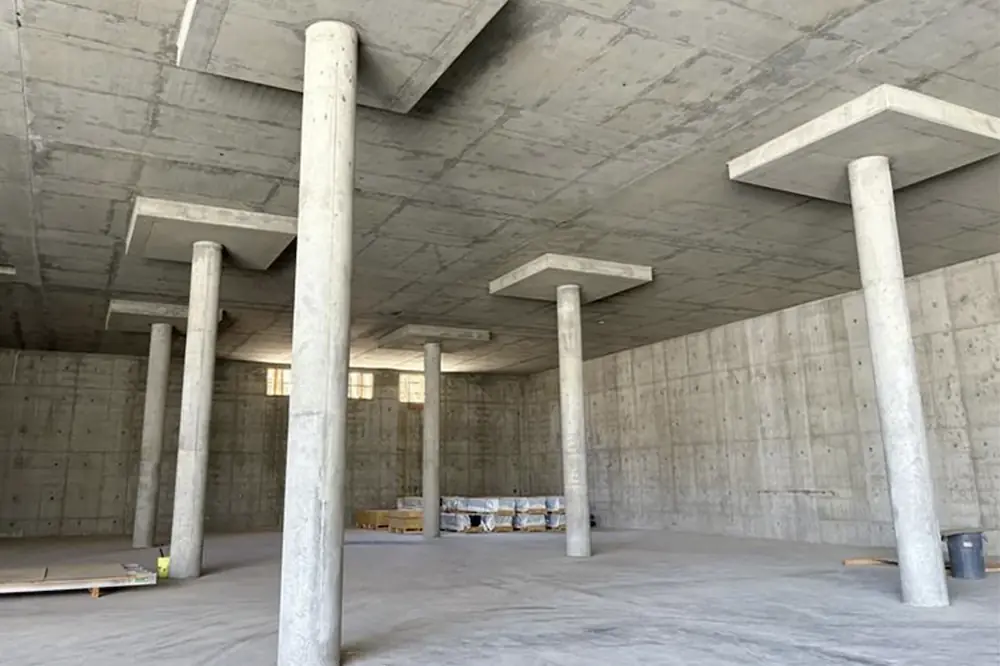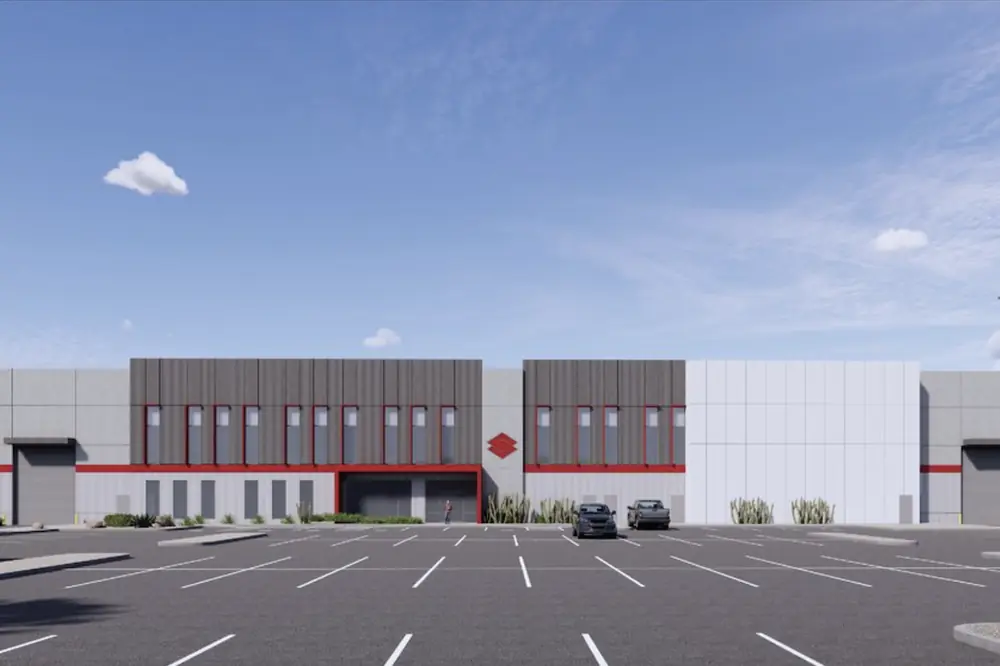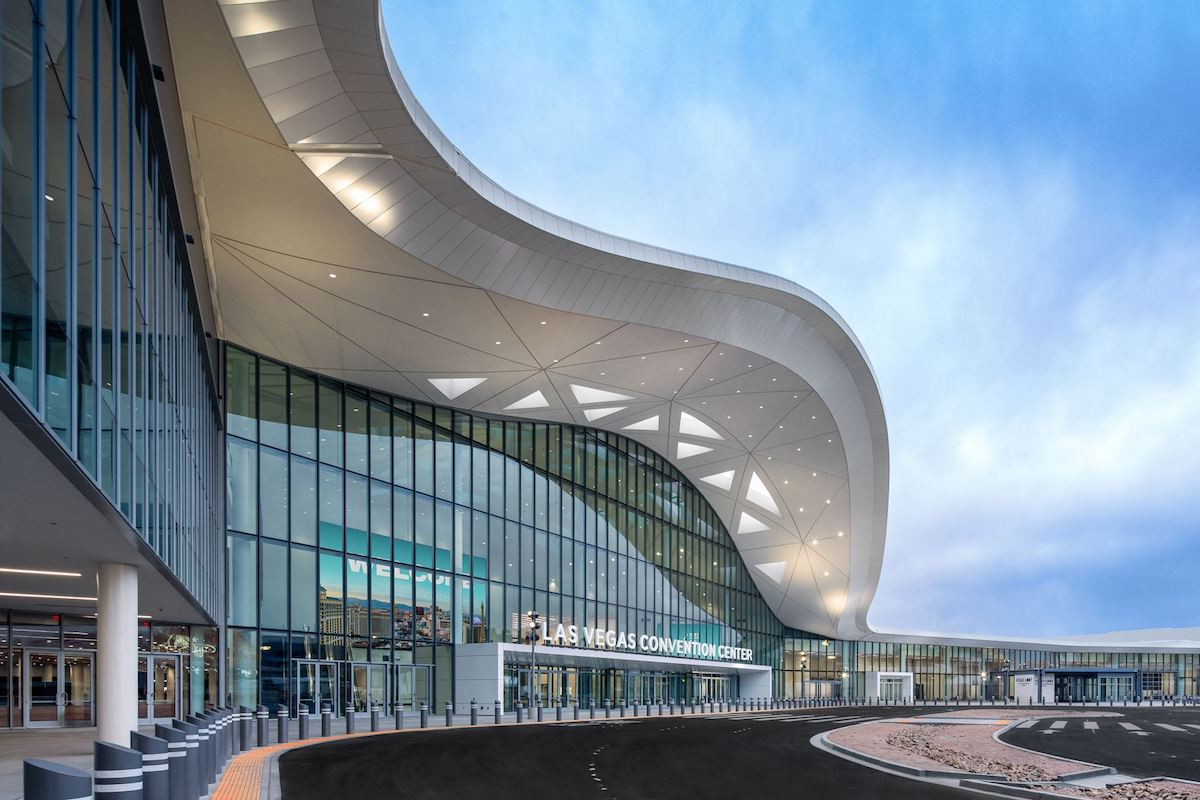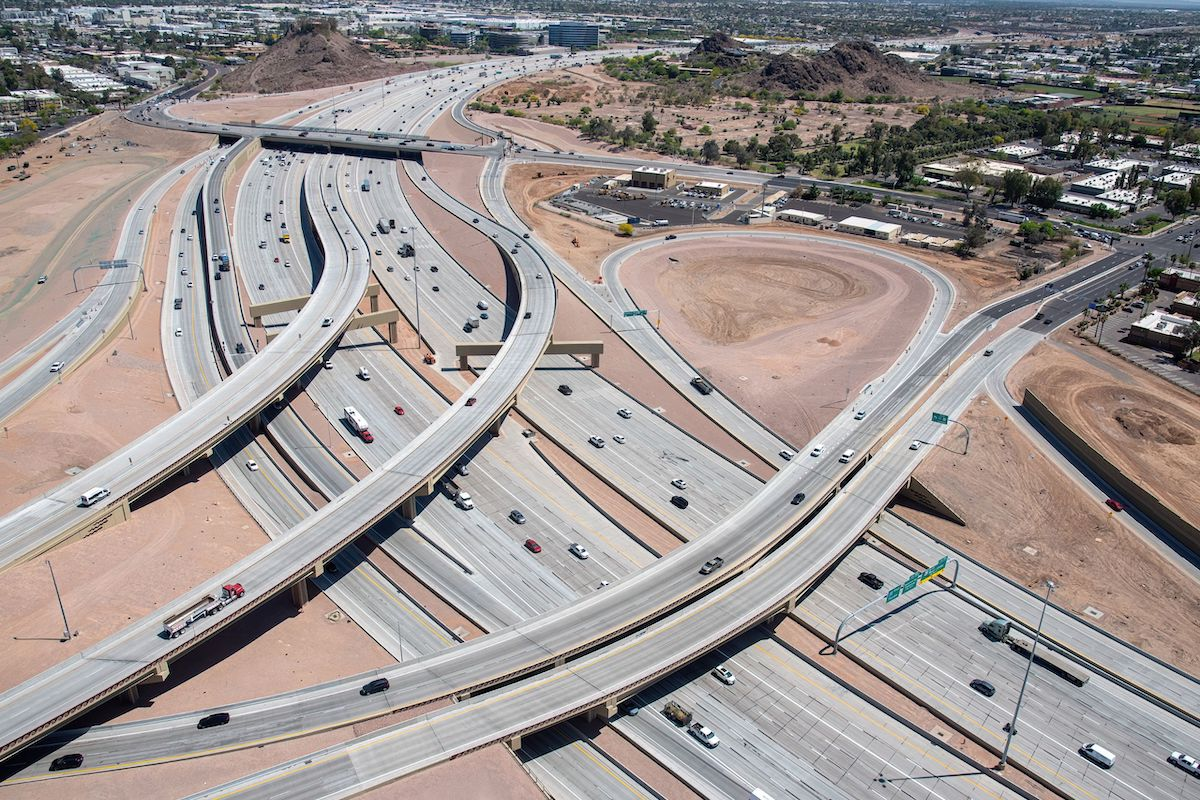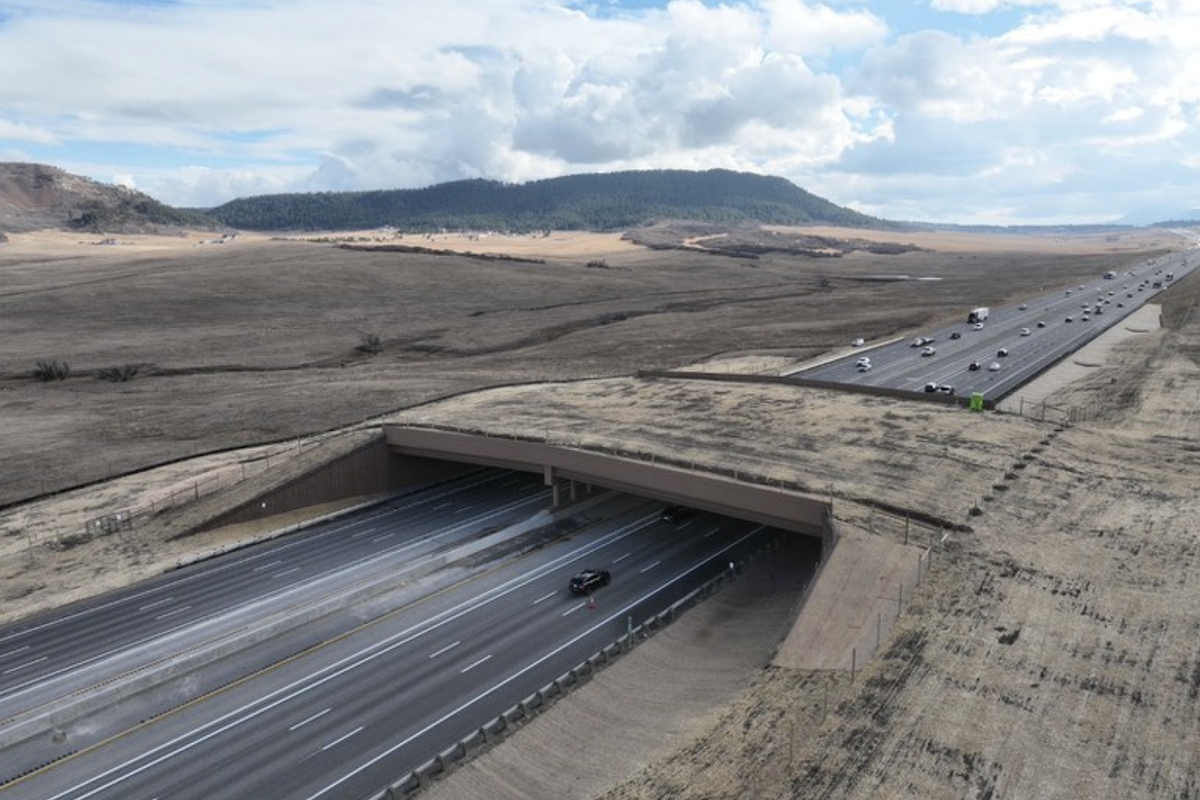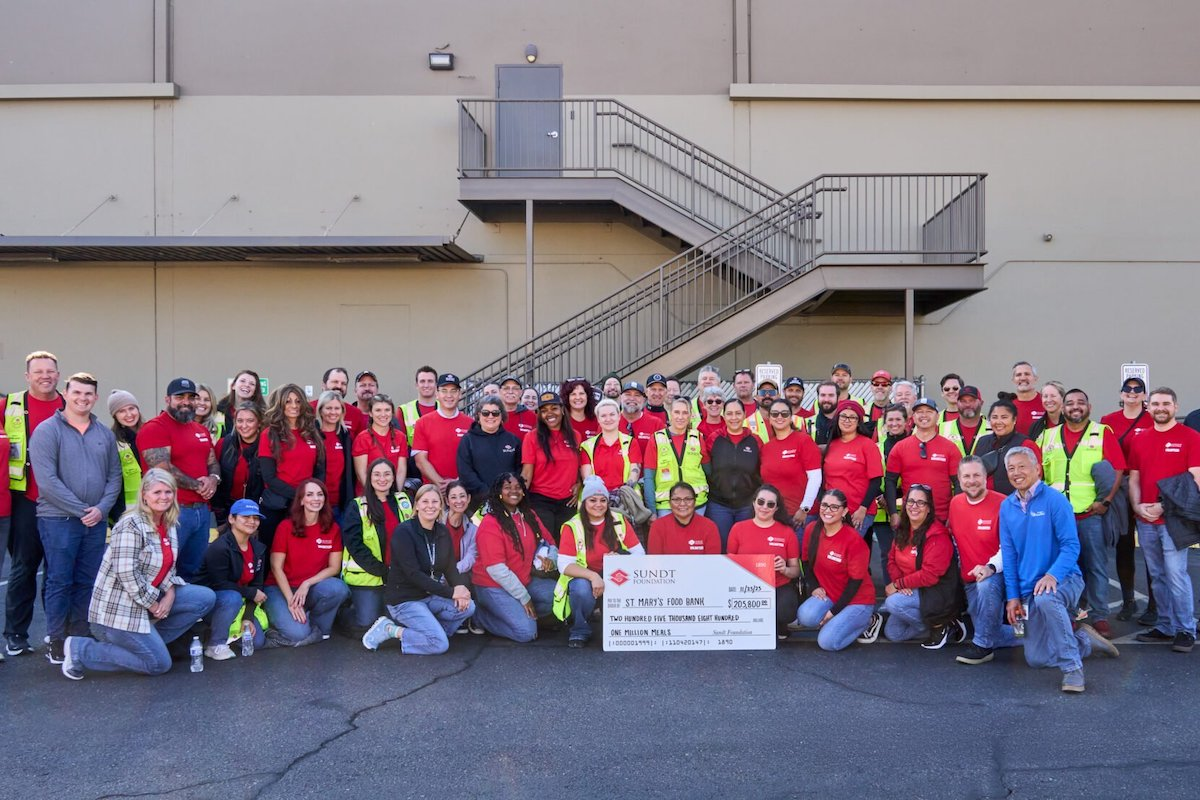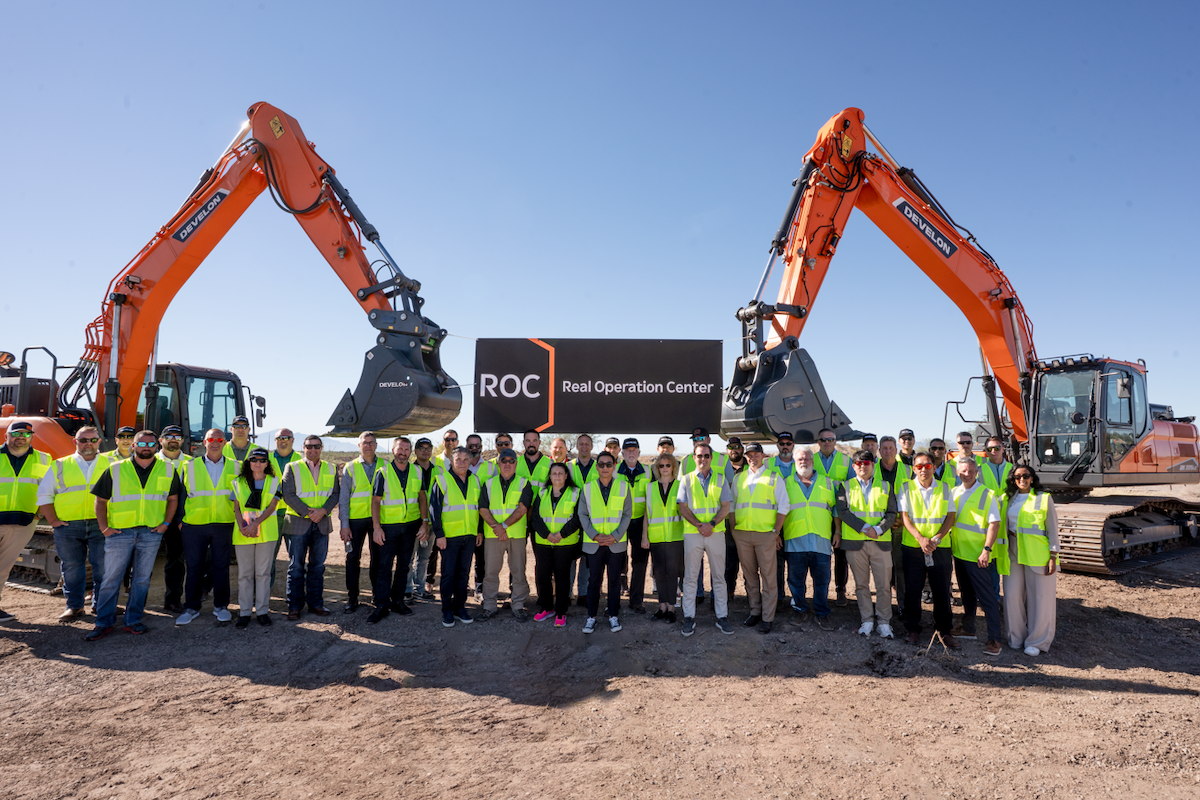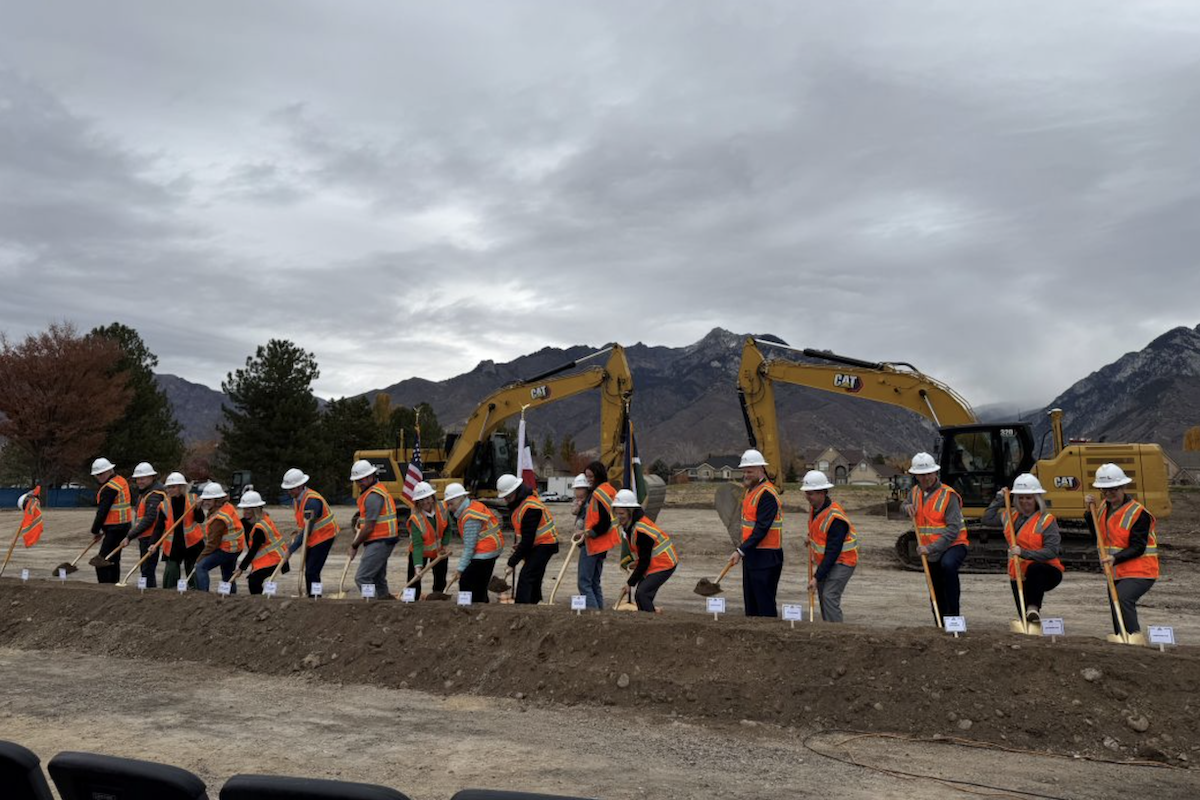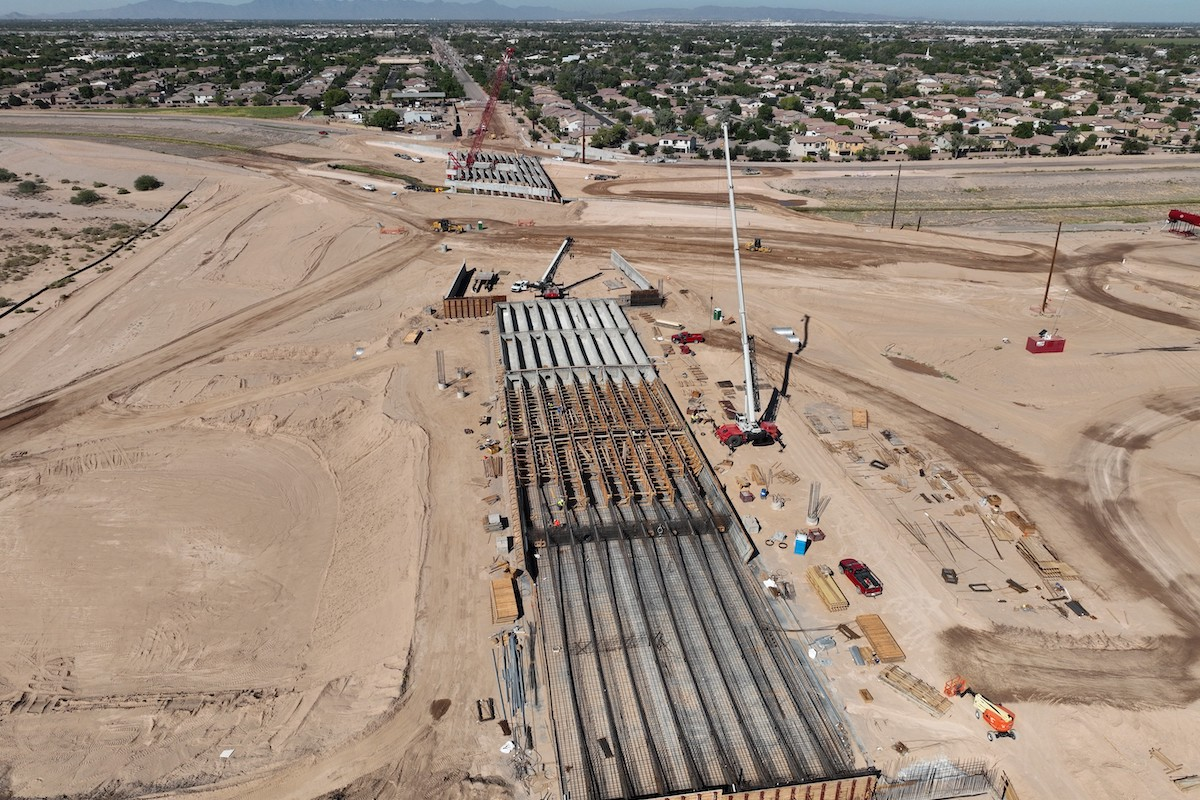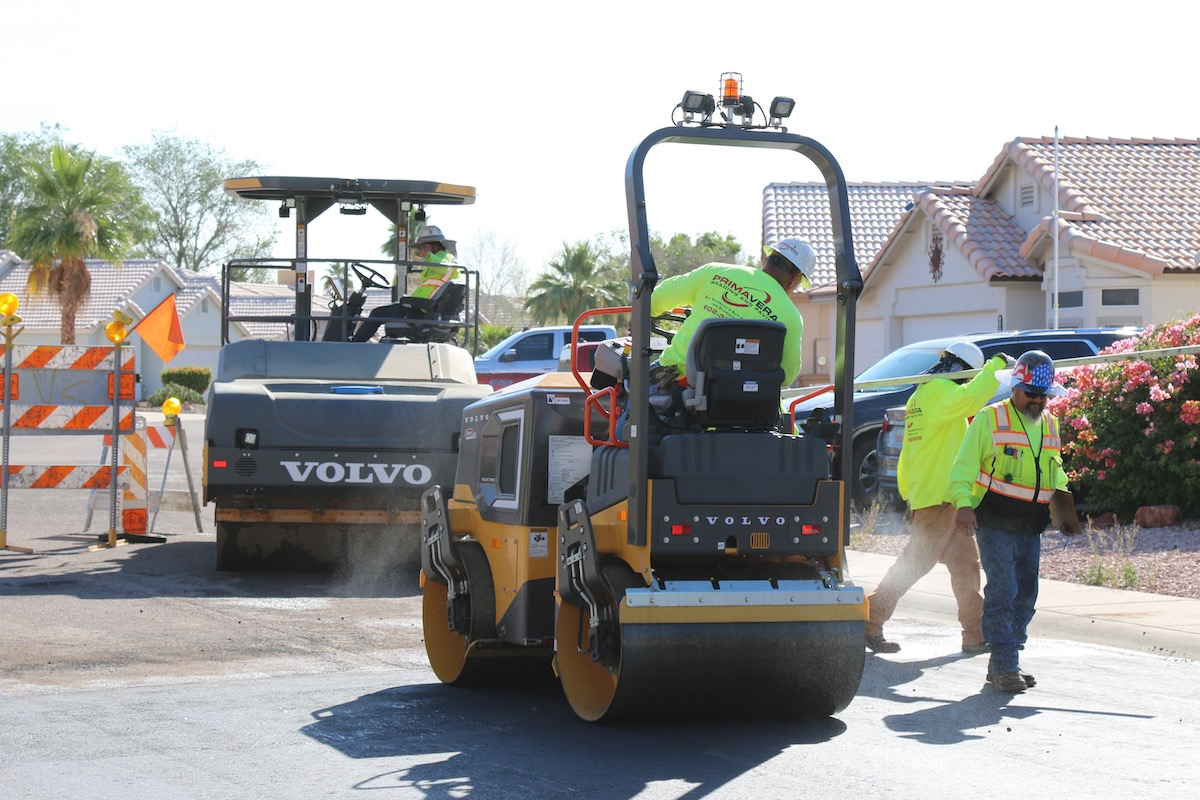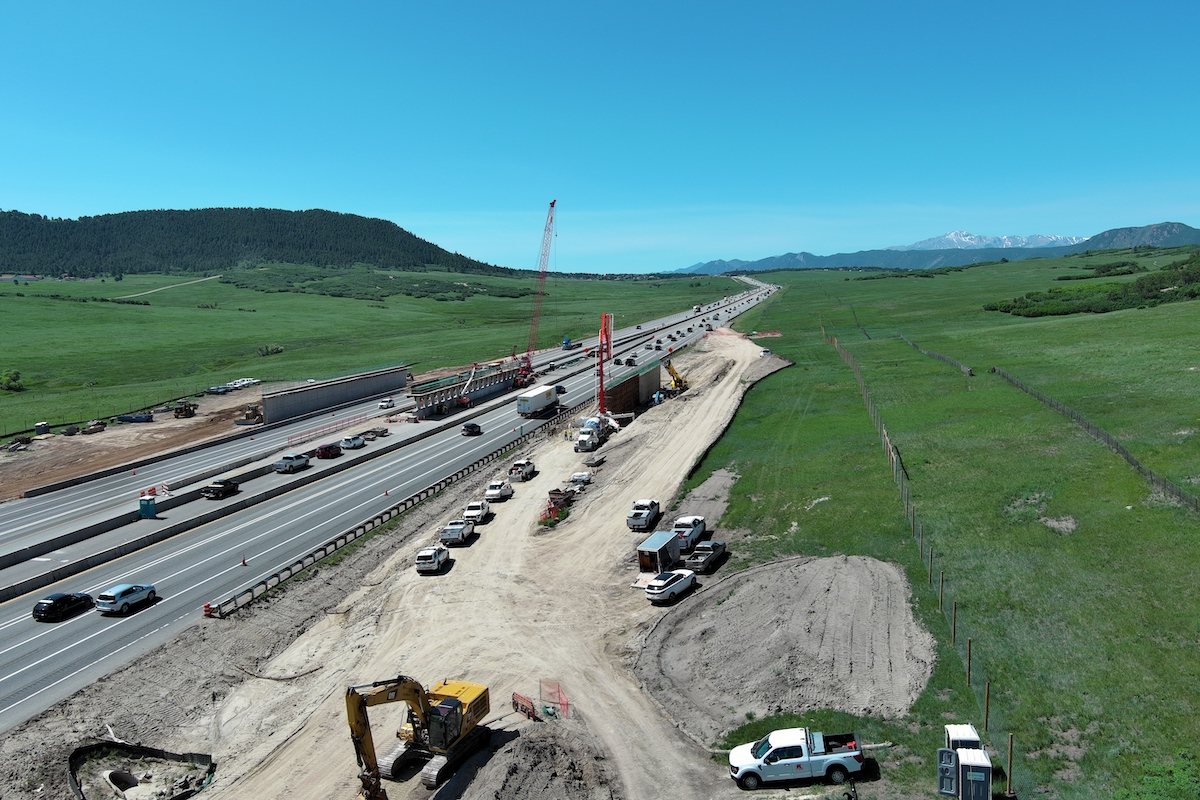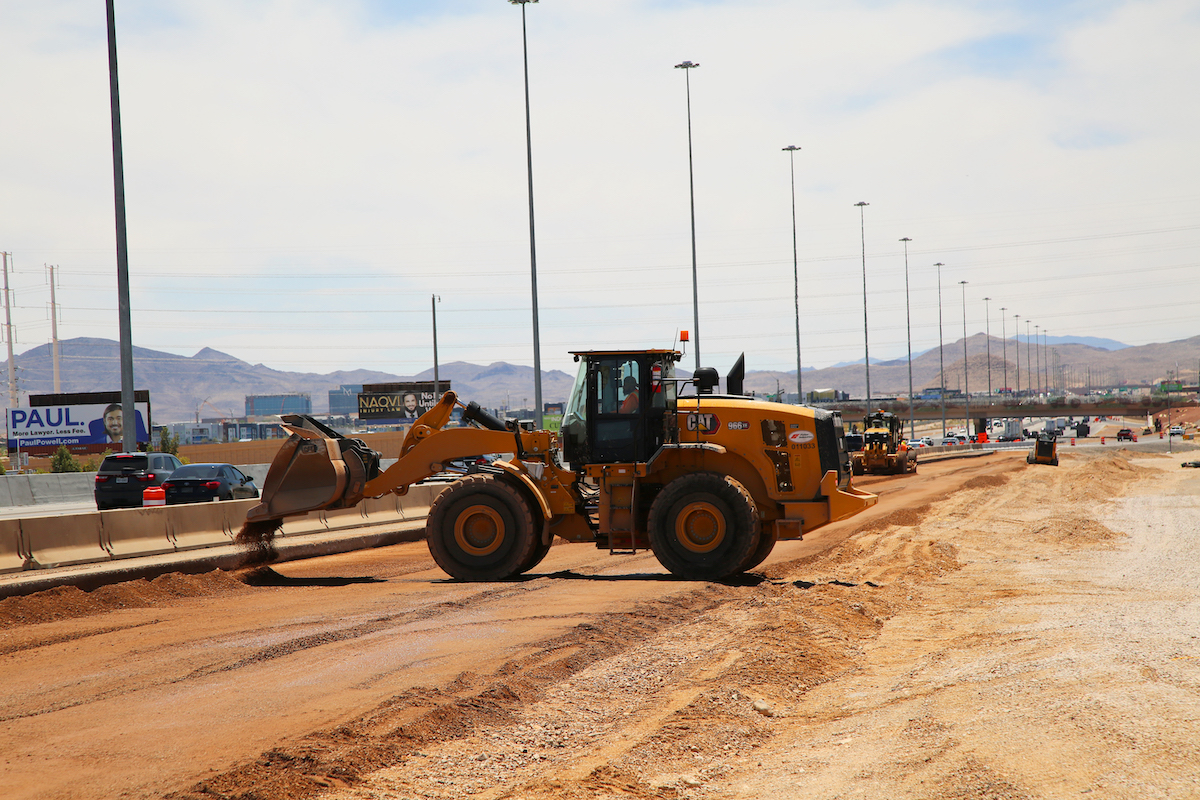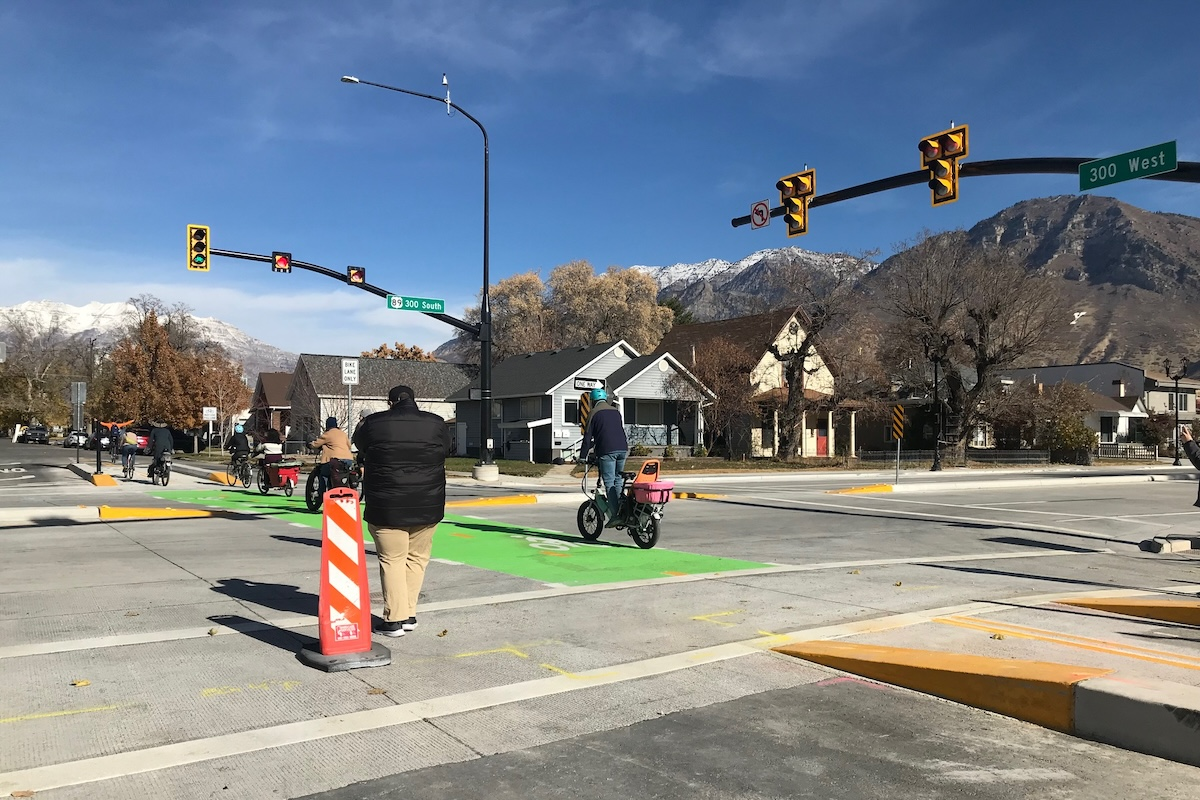As part of the project, six miles of M-37 are being resurfaced. Over the course of the six miles, the number of lanes varies from two to five. The aim of the resurface and millwork is to create a smooth safe path for motorists, improve operations, and extend the service life of the roadway.
Along the project is three intersections. At one of the intersections, MDOT is putting in geometric improvements. In the past, there were stop signs at the intersection. Traffic turning right would use a SLIP lane, which removes them from through-traffic and allows them to maintain a similar speed during their turn. There were several crashes in the area, and the public called for safety improvements at the heavily trafficked intersection of Finkbeiner/Crane Roads.
In response, MDOT is installing a right turn lane and traffic signal. When completed, vehicles will make a more typical right-hand turn. This will separate through traffic from turning traffic, allowing turning vehicles to slow down without impeding others on the road.
“We project that the geometric improvements and the addition of a traffic signal will increase safety and improve operations through the corridor and lead to less back-ups and congestion in the area since traffic can pass more freely,” says MDOT’s Jacob Alarie, the Project Engineer who is overseeing day-to-day operations on the project.

| Your local Bobcat dealer |
|---|
| Ditch Witch West |
| Faris Machinery |
| Ditch Witch West |
| Faris Machinery |
Throughout the project limits, M-37 had been experiencing pavement joint deterioration. There were cracks in the road and the rough surface led to poor driving conditions.
The project also includes a new concrete curb and gutter, new guardrail, culvert replacement, new signs, pavement markings, and bridge improvements at Duncan Creek. The guardrails are being upgraded to the new standards.
The project completion date was pushed back a few weeks due to rainy weather. This part of Michigan experienced lots of rain during construction season, which impacted work being done on the Duncan Creek bridge. Work included waterproofing beams on the bridge to extend its service life. To do the waterproofing, the bridge needed a minimum of 72 hours of dry weather with no moisture on the box beams. Alarie notes that even a five minute rain resets the clock. “It took two months until we got three straight days of good weather,” says Alarie.
A second challenge was the uncovering of a few items in the field that had to be dealt with. Among these surprises was a culvert headwall. The team had to remove 60 feet of culvert pipe and replace a 36-inch culvert headwall along with 8 feet of pipe. The pipe and headwall detached from the remaining length of the culvert causing the surrounding soils to erode and the headwall to settle.
Besides affecting the schedule, these discoveries impacted the budget. Originally budgeted for $7.4 million, including $5.8 million for the contractor, the budget is projected to come in slightly over. This project combines both state and federal funds.

| Your local Gomaco dealer |
|---|
| Faris Machinery |
| Faris Machinery |
Michigan Paving and Materials served as the contractor for the project. They were selected by low bid. This was the first time that Alarie worked with Michigan Paving and Materials as the prime contractor – in the past, they were a subcontractor. Regular communication, Alarie believes, is critical to delivering the best possible product. He also notes the coordination between the prime and sub-contractors is key to keeping close to the schedule, despite the challenges.
“The automated flagging system helped to make sure traffic was flowing in one direction at a time which made it safer for the flagger and gave extra warning to motorists,” says Alarie.
Upon completion of the project, commuters in the area will experience increased safety and mobility. In addition, the roadway will make for a smoother safer driving surface that will be in service for years to come.








